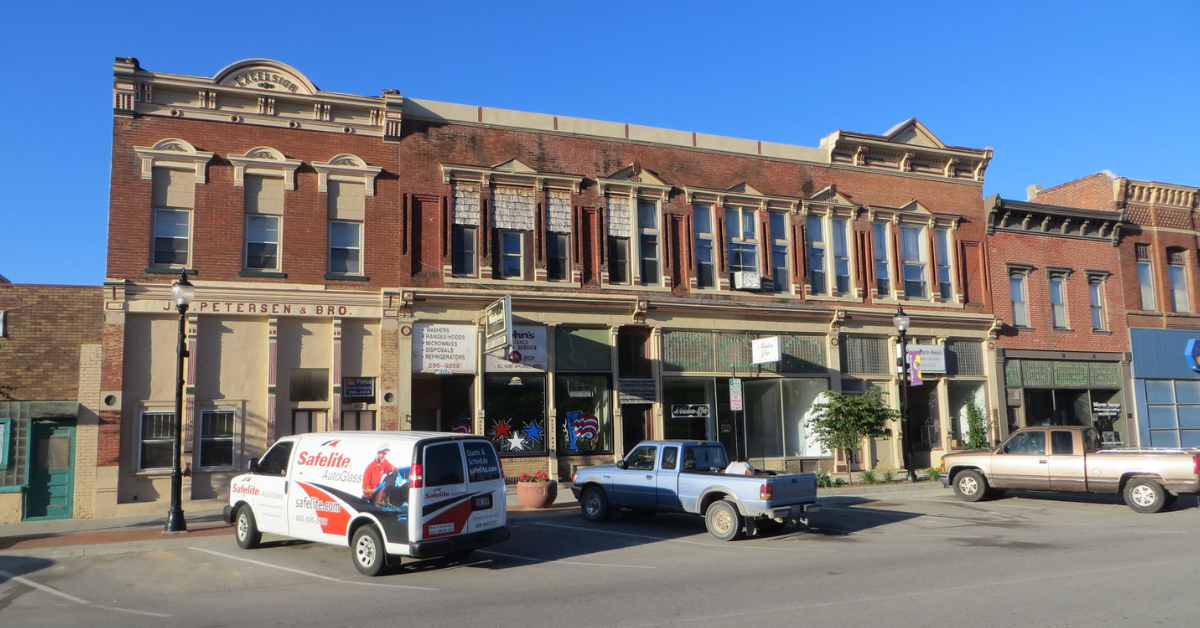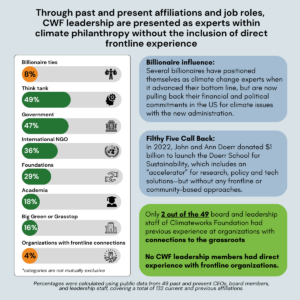Since the 1980s, an escalating combination of resource extraction, economic globalization and automation, retail consolidation, industrial agriculture, fossil fuel development, and regressive tax and budget policies has hurt many rural and small city communities and economies across the country.
In turn, this tangle of obstacles has produced social and political fragmentation across urban/rural, religious and racial lines that make public discussion and consensus around core values, public policy and a vision for a shared future increasingly difficult.
At the same time, there has been a decades-long downward trend in philanthropic investment in people and places outside major metropolitan regions, and that disinvestment is now almost total.
Even exceptional community leaders, organizations and projects across rural and small city America are almost entirely unsupported by, invisible to and disconnected from broader social justice and issue advocacy efforts.
It’s no wonder progressives felt blindsided by the 2016 election. They’ve largely separated themselves from rural voices, perspectives and experiences for 30 years.
Non-metro areas provide a great opportunity for philanthropy
Truth is, there is enormous energy, innovation and commitment among people in these places to steward their communities toward a promising future.
In addition, the demographic landscape in suburbs, small cities and small towns is far more multi-racial and multi-ethnic than many urban progressives think.
Indeed, rural and small city America is only about 14% less diverse than the rest of the country, a gap that continues to shrink.
What’s more, when presented with compelling narratives and policy proposals of concern to them – on issues ranging from health care to environmental protection to inequality and economic opportunity – a large number of rural and small city residents support progressive and populist positions. The divides are narrower than we think.
(For further information and analysis on rural demographic, cultural and political trends, see Wallace Global Fund’s recent report, All the People, All the Places.)
The 2018 midterms demonstrate this. Rural voters shifted their vote by 7% compared to 2016, while suburban voters shifted their vote by 5%.
These shifts occurred because candidates and civic engagement groups supported bold – and often progressive – policy platforms that spoke to the expressed needs and issues of a cross-section of suburban/small city/rural voters.
Especially in the Midwest, this political volatility resulted in significant progressive wins, many driven by rural and small city voters. These included:
- Progressive governors elected in Michigan, Wisconsin, Illinois, Minnesota and Kansas.
- Progressive gains in state legislative elections (despite gerrymandered maps) in Iowa, Minnesota and Michigan.
- Major shifts in U.S. House district elections.
- Major pro-democracy reforms passing on the ballot in Ohio, Michigan and Missouri.
We now see new governors and legislators committed to, for example, 100% renewable energy, raising the minimum wage, increased access to healthcare, criminal justice reform and other progressive policies.
To some degree, this turnaround is the result of concerted efforts by state and local organizing, issue advocacy and community-building groups to reach beyond major metro regions and into suburbs, small cities and small towns.
Despite their productivity and potential, these efforts remain significantly underfunded by national and most state-based donors. With more support, these groups’ scale and impact could soar.
While the Midwest offers the most politically volatile, and therefore opportune, region in the country, the same investment is needed everywhere.
In short, it is simply not possible to arrive at a representative governing majority – in states or nationally – while writing off non-metro areas and accepting massive and uncontested ideological, cultural and political losses in those places.
Without small cities, towns and rural areas, we won’t be able to build support for, enact and enforce public interest ideas and policies.
To be clear, this is not a case against deeper work in urban areas, but rather a case for investments in rural and urban/suburban/small city engagement to be a meaningful part of an integrated statewide strategy.
To jumpstart and better coordinate this work in the Midwest, a group of national and state funders created The Heartland Fund.
The Heartland Fund
The Heartland Fund, a 501c3 donor collaborative housed at the Windward Fund, was launched in 2018 by the Franciscan Sisters of Mercy and the Wallace Global Fund, and since joined by other donors, to begin redressing the philanthropic neglect of rural, small city and suburban communities in the region.
Heartland’s mission is to promote increased multi-issue and multi-racial organizing, issue advocacy, movement building and civic engagement in the Midwest, and to support an infrastructure working to bridge social and ideological divides.
Initial grants supported superb efforts already underway towards building the capacities of groups and leaders.
The Heartland Fund’s grantmaking – deeply informed by a diverse, multi-issue advisory board of field leaders from across the region – is designed to connect with and amplify the funding priorities and strategies of other donors and donor collaboratives who support work in the Midwest.
The Heartland Fund is one example of the kind of generative engagement needed to ensure that the Midwest region can continue to be an anchor and engine for ideas, alliances, movements and policies that promote a more equal, just and prosperous country.
Scott Nielsen is managing director of advocacy at Arabella Advisors and a founding partner of The Heartland Fund. Follow @arabellaadvisor on Twitter.
Photo by David Wilson, used under Creative Commons license.
































































































































































































































































































































































































































